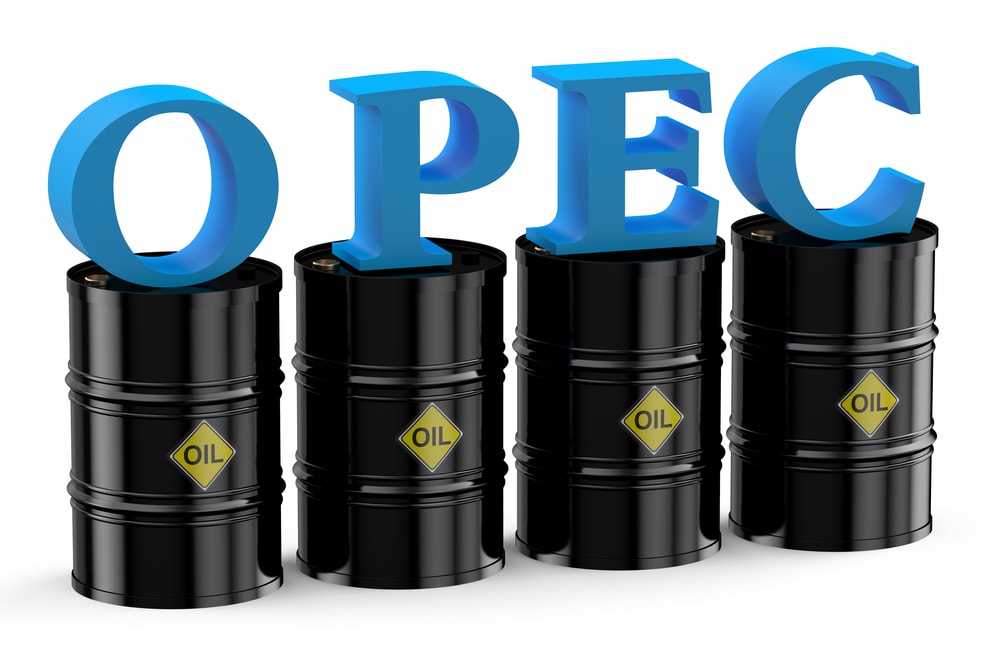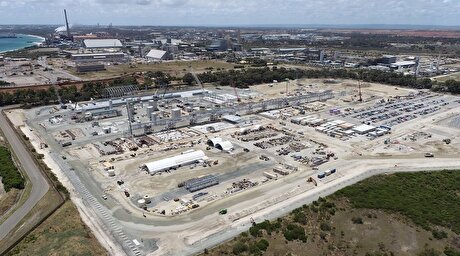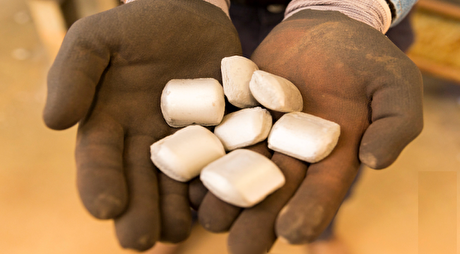
OPEC Raises 2017 World Demand Growth Forecast


The increase is said to reflect growing demand from Asia, which is anticipated to lead oil demand growth. China and the US are both expected see an uptick in demand this year, while the Asia-Pacific region is expected to see a decline, CNBC reported.
Total oil consumption in 2017 is expected to stand at 96.32 million barrels per day. The forecasts come as OPEC countries cut oil output in March more than anticipated.
In its monthly market report, OPEC said the group’s production – based on secondary sources used to assess members’ output – dropped 152,700 barrels per day to 31.9m bpd last month, led by declines in Libya, Nigeria, UAE and Iran.
The group’s in-house analysts peg demand for the group’s crude at 32.2 million bpd in 2017, suggesting bulging global inventories should start to tighten this year if their assessment is correct and output levels are maintained, even as a recovery in prices has spurred a jump in production from the US shale patch.
OPEC analysts said stronger seasonal demand should support crude oil heading into the summer months after prices slipped to a year-low below $50 a barrel last month, with traders concerned the group's attempts to tighten the market through a supply deal with non-members like Russia were being overshadowed by the snap back of US production.
The biggest declines came in Libya and Nigeria who are not subject to the output agreement struck late last year due to long-running disruptions caused by violence and political unrest in the countries.
Oil prices have reversed their losses in March, with Brent crude oil hitting a month-high of $56.65 a barrel on Monday. Saudi Arabia, the group's de facto leader, provided numbers directly to OPEC, saying it cut output by 111,0000 barrels a day last month to 9.9 million bpd.
In last month’s OPEC report Saudi Arabia had posted numbers showing it raised output above 10m bpd in a move that briefly unnerved markets, before the kingdom issued a rare statement to explain the output increase was aimed at replenishing domestic inventories, rather than an attempt to increase exports.
The threat from US shale was laid bare in the report, however, with OPEC analysts increasing their forecast for US production growth by 200,000 bpd to 540,000 bpd this year. Total non-OPEC supply was forecast at 580,000 bpd, OPEC said.


Caterpillar sees US tariff hit of up to $1.5 billion this year

Australia pledges $87M to rescue Trafigura’s Nyrstar smelters in critical minerals push

SAIL Bhilai Steel relies on Danieli proprietary technology to expand plate mill portfolio to higher steel grades

Fortuna rises on improved resource estimate for Senegal gold project

Alba Discloses its Financial Results for the Second Quarter and H1 of 2025

Copper price slips as unwinding of tariff trade boosts LME stockpiles

Tianqi Lithium Australia JV says it is prioritizing long-term viability of refinery

Fresnillo lifts gold forecast on strong first-half surge

US slaps tariffs on 1-kg, 100-oz gold bars: Financial Times

De Beers strikes first kimberlite field in 30 years

Minera Alamos buys Equinox’s Nevada assets for $115M

OceanaGold hits new high on strong Q2 results

What’s next for the USGS critical mineral list

South Africa looks to join international diamond marketing push

Copper price gains on Chinese demand, Chilean supply risks

Gold exploration spend trending down despite higher prices – S&P Global

A global market based on gold bars shudders on tariff threat

New research reveals source of world’s richest lithium deposits

Century Aluminum to invest $50M in Mt. Holly smelter restart in South Carolina

De Beers strikes first kimberlite field in 30 years

Minera Alamos buys Equinox’s Nevada assets for $115M

OceanaGold hits new high on strong Q2 results

South Africa looks to join international diamond marketing push

Copper price gains on Chinese demand, Chilean supply risks

Gold exploration spend trending down despite higher prices – S&P Global

A global market based on gold bars shudders on tariff threat

Century Aluminum to invest $50M in Mt. Holly smelter restart in South Carolina

Australia to invest $33 million to boost Liontown’s Kathleen lithium operations














